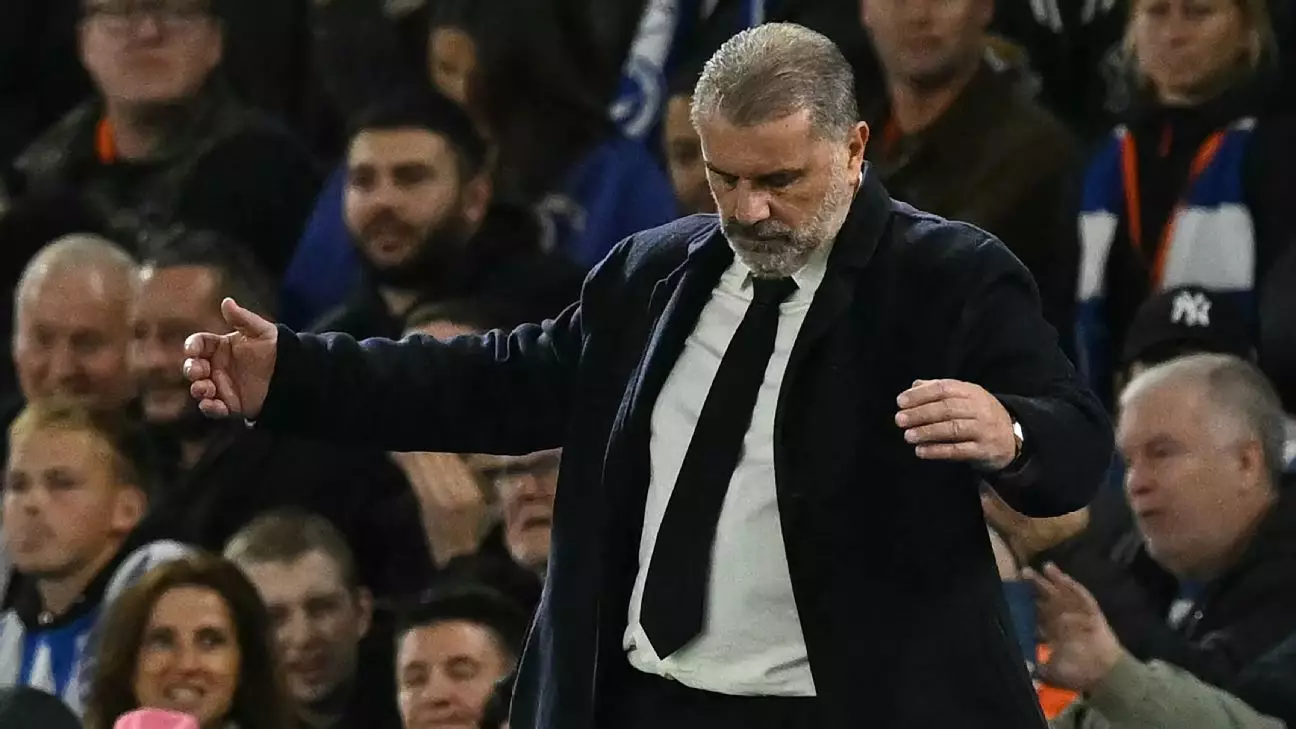Tottenham Hotspur’s recent match against Brighton was a tale of two halves that showcased not just fluctuating fortunes on the scoreline, but also profound issues regarding team mentality. Manager Ange Postecoglou labeled the 3-2 defeat as his “worst defeat” since taking the reins, and rightly so. Coming into halftime with a promising 2-0 lead courtesy of goals from Brennan Johnson and James Maddison, the mood in the Spurs camp was optimistic. Fans and players alike were buoyed by their first-half performance, which was characterized by creativity and determination. Yet, this elation quickly turned to despair as the second-half performance unraveled in dramatic fashion.
Postecoglou didn’t mince words when he addressed the team’s performance, expressing his dismay and disbelief at the sudden drop in focus and discipline. “It’s an unacceptable second half,” he stated, revealing the frustration that permeated the club. Such a significant change in performance raises critical questions about the mentality within the squad. Why did a team that had previously demonstrated such fight and tenacity capitulate so easily? Was it overconfidence, a lack of fitness, or deeper issues that have begun to surface? These are the questions that both the management and fans will ponder during the international break.
Procrastination in their play led to an inability to manage Brighton’s increased attacking momentum, ultimately gifting the Seagulls the chance to stage a remarkable comeback. Once Tottenham seemed to ease up on the gas, Brighton seized the opportunity, scoring three unanswered goals in a process that can only be described as clinical. This approach not only disheartened the Spurs’ defense but also highlighted a glaring inability to adapt under pressure.
Postecoglou’s comments about complacency resonated strongly. Football, like life, offers no guarantees; it can turn on a dime, as demonstrated in the second half. Perhaps this team, riding high from previous performances that suggested a revival under Postecoglou, became too complacent, misjudging their ability to maintain momentum. This mentality is an issue that extends beyond one match—it speaks to a deeper pattern that must be addressed if they are to compete at the highest levels.
The failure to hold onto a lead serves as a stark reminder of the unpredictability of Premier League football. By allowing that sense of invulnerability to creep in, Tottenham not only lost a vital opportunity to solidify their place among the top four but also slipped down to ninth position with just 10 points from their seven matches. Completing the season without acknowledging problems like these could be detrimental to the club’s ambitions.
Postecoglou, who sought to inspire his squad, stated succinctly: “There’s only one way to fix it, and that’s my responsibility.” This acknowledgment of accountability is commendable but should also echo throughout the squad. The coming weeks will be pivotal for Tottenham. As they head into the international break, team cohesion, mentality, and the capacity to rise from adversity should be at the forefront of discussions. It is crucial that the team not only learns from this defeat but emerges resilient and ready to face the challenges ahead. The road to recovery begins with introspection, and the upcoming matches will reveal whether this loss marks a turning point or a painful trend within the club.

Leave a Reply